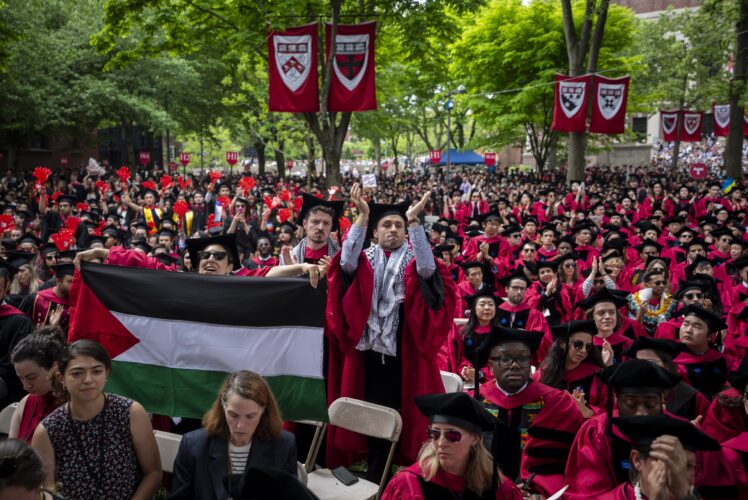Harvard University announced on Tuesday that the school and its leadership will no longer issue statements taking an official position on current events and issues that do not “directly affect the university’s core function.” The new policy, first proposed by Harvard’s newly formed Institutional Voice Working Group, follows months of controversy at the university as students and faculty divided over the Israel-Hamas war.
The Institutional Voice Working Group was created in April by interim university President Alan M. Garber and interim Provost John F. Manning to decide how Harvard should “speak on matters of social and political significance and who should be authorized to speak for the institution as a whole.” The group, co-chaired by Noah Feldman, the Felix Frankfurter Professor of Law at Harvard Law School, and Alison Simmons, the Samuel H. Wolcott Professor of Philosophy, spent the intervening time compiling a report to recommend the proper approach for the school.
“There will be close cases where reasonable people disagree about whether a given issue is or is not directly related to the core function of the university,” the report stated. “The university’s policy in those situations should be to err on the side of avoiding official statements.”
Learn the benefits of becoming a Valuetainment Member and subscribe today!
“The main point of the report is that the University’s leadership can and should speak out on anything relevant to the core function of the University, which is creating an environment suitable for free, open inquiry, teaching, and research,” Feldman stated. “That environment is threatened these days, and we need to defend it. At the same time, the University as an institution should not make official statements on issues outside its core function. Harvard isn’t a government. It shouldn’t have a foreign policy or a domestic policy.”
According to the Harvard Gazette, President Garber announced via email that the university will adopt the working group’s recommendation as official policy. The new guidelines will apply to administrators, deans, board members, and faculty. However, students and individuals employed by the school are still free to make statements on issues provided they make clear that they are not speaking on Harvard’s behalf.
“Individuals within the university, exercising their academic freedom, sometimes make statements that occasion strong disagreement,” the report stressed. “When this happens, the university should clarify that they do not speak for the university and that no one is authorized to speak on behalf of the university except the university’s leadership.”
Related: Harvard University Named America’s Worst School for Free Speech
The new restrictions follow several months of intense controversy on Harvard’s campus in the aftermath of the October 7th Hamas attacks on Israel. Shortly after the attack, Harvard leadership issued a statement offering condolences for the “death and destruction,” only to release a follow-up statement condemning Israel as “entirely responsible” for the violence under pressure from student groups.
Soon after, then-Harvard President Claudine Gay delivered a disastrous Congressional testimony in which she declined to say whether calls to “genocide the Jews” violated campus speech policies. She would go on to resign from her position after being hit with accusations of plagiarism.
Connor Walcott is a staff writer for Valuetainment.com. Follow Connor on X and look for him on VT’s “The Unusual Suspects.”
Got a hot scoop or an idea for a story? Connect with the VT writers on Minnect!



















Add comment